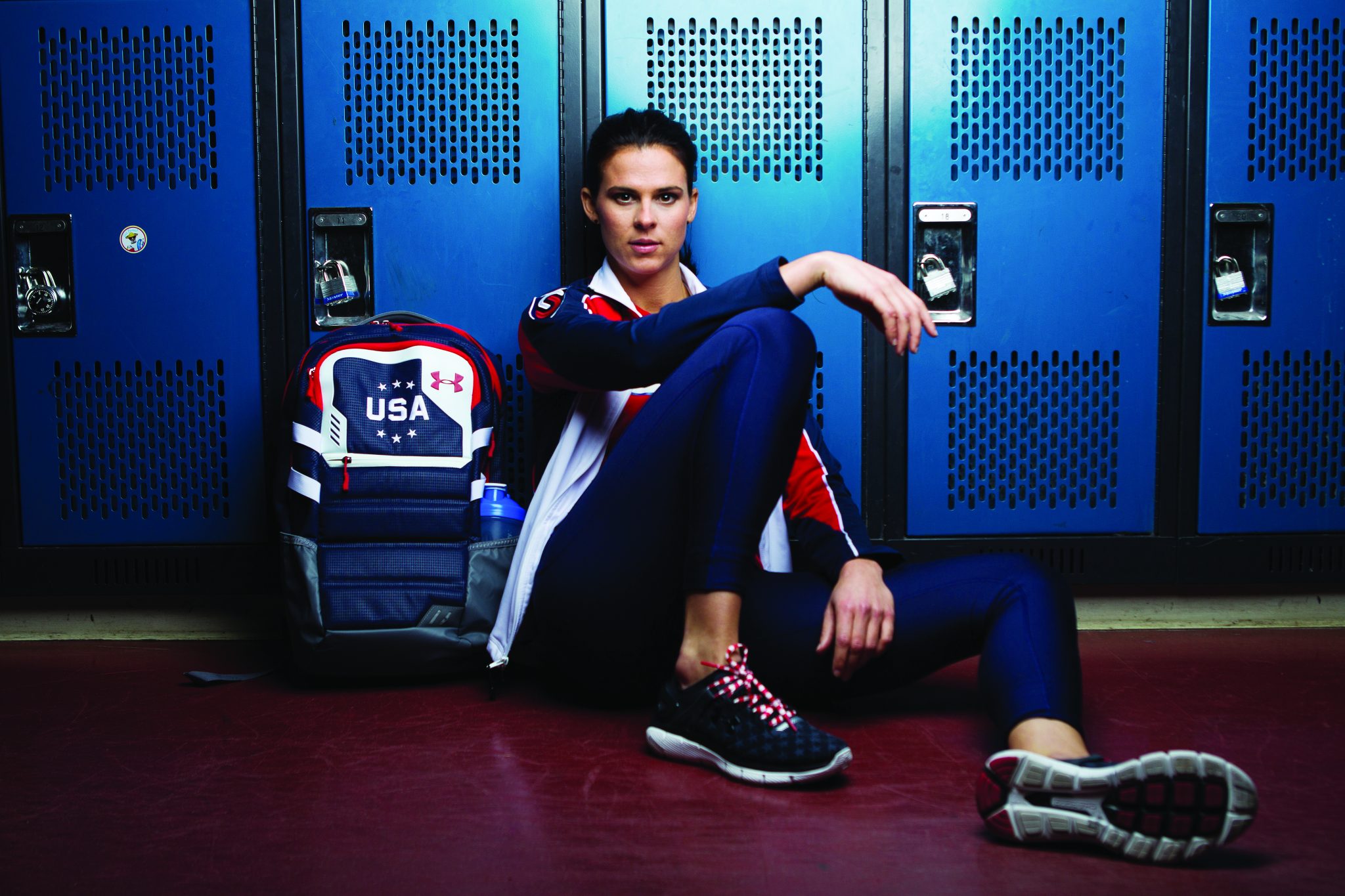From a young age, Brittany Bowe knew what she wanted. Like most grade schoolers, the Ocala, Fla., native would often be asked, “what do you want to do when you grow up, what occupation?” she recalls. “It was always, ‘Olympian.’”
Bowe achieved that goal as a speed skater in the 2014 Winter Olympics in Sochi, and she returned to represent Team U.S.A. in the two Olympic Games since. She’s won two Olympic bronze medals, the capstone of an already illustrious career. A six-time speed skating world champion, Bowe has set four world records in her sport and secured 68 World Cup medals.
“It is the most challenging thing I’ve done mentally and physically, [but] I get to go to work and play every single day,” she says. “And I feel really blessed that I love what I do.”
Bowe lives in Utah now, but Boca Raton played a fundamental role in her journey. Born immersed in the sports world—her father coached high school basketball, and her mother taught college cheerleading—Bowe found her first calling on the hardwood. “I could dribble when I could walk,” she told a reporter in her first Olympic profile. Florida Atlantic University accepted her on a Division I basketball scholarship. She would go on to be named FAU’s Most Outstanding Female Athlete in the 2009-2010 season, and in 2023, she returned to Boca to accept her induction into the university’s Hall of Fame.
But it was perhaps outside the court that FAU made the biggest impact on Bowe’s life. She first began to realize she was gay in high school, when her classmates were increasingly boy-crazy and she wasn’t. But growing up in conservative Ocala, as part of a Catholic family, “being anything other than heterosexual was not discussed,” she says. “Because I was finding so much success in these other areas of my life, I just decided to keep quiet about it. … Everyone around me was so proud of everything that I was doing that I didn’t want to bring a shadow on top of that success.
“When I walked onto campus at Florida Atlantic University, one of the first things I remember is seeing diversity for the first time—seeing that there were people from different places, different ways of life, different sexual orientations. It felt like a new beginning for me. I can honestly say that I was accepted with open arms from anybody that I interacted with on campus. And to be comfortable in my skin for the first time was one of the most empowering moments of my life.”
Her professional basketball aspirations would end with FAU, however. She had been competing—and winning—major inline skating competitions even before joining the FAU Owls. In her senior year, while watching the 2010 Winter Olympics in Vancouver, she decided to pivot. “I told my coach that when I graduated from FAU, I wasn’t going to continue to pursue basketball. I was going to move to Salt Lake City and become an Olympic speed skater,” she says. “Once you start to reach the pinnacle of your sport, you have to narrow down to really perfect your craft. Doing both was never an option.”
Preparing for the Olympics, Bowe says, is a “fulltime job”—training twice a day, six days a week. “It is the most high-pressure situation that you could ever imagine as an athlete,” she says. “The atmosphere at the Olympic Games is electric. … It’s your time to shine, and it’s your time to show the world what you’re made of.”
Winning a medal, Bowe says, is “a feeling like none other. I get asked the question all the time, ‘why are you still doing it?’ And that feeling of euphoria is just that. I’m obsessed with winning. That feeling that you get, as great as it is, lasts for just a split-second. If you don’t have your head on your shoulders, and if you aren’t surrounded by people that genuinely care about you and love you and support you, that winning feeling can get really lonely really quickly.”
At 35, Bowe is already eyeing the next Olympic Games, in Milan, knowing that it’s likely her last. “Once you start getting into those 30s, there’s only a handful of us left,” she says. “But as long as I can remain competitive, as long as I feel a love and desire to compete and win, I’ll be shooting for the 2026 Olympic Games.”
Bowe discusses what it was like to compete in the Olympics during COVID, the relationship between mental health and sports, her post-retirement plans, and more in this exclusive Web Extra from the March 2024 issue of Boca magazine.







